You Don’t Need Coffee to Feel Awake: Here’s How to Boost Energy Naturally
Let’s be real: it’s your third time hitting snooze. Your head’s foggy, your body aches, and you still haven’t mustered the energy to make it to the coffee machine — even though you technically got eight hours of sleep. Sound familiar?
You’re not alone. So many of us rely on caffeine to kickstart our mornings (and survive our afternoons). But here’s the truth: depending on caffeine to “feel alive” is like taping over a blinking check engine light. It might help in the moment, but it doesn’t fix the underlying problem — and it often makes things worse.
If you’re ready to feel more energized without relying on cup after cup of coffee, you’re in the right place. This guide walks you through simple, science-backed ways to build natural energy that actually lasts.
Why You’re Always Tired (And It’s Not Just About Sleep)
Most people think exhaustion just means “you didn’t sleep enough.” But it’s not always that straightforward. Feeling drained all the time can be caused by things like:
-
Mild dehydration (even a 1% drop can make you feel groggy)
-
Unbalanced meals that cause blood sugar crashes
-
Chronic stress draining your adrenal system
-
Sitting too much, which slows circulation and metabolism
-
Poor sleep quality, even if you’re getting 7–8 hours
-
Too much caffeine, which disrupts natural energy rhythms
Before reaching for another latte, try working with your body — not against it.
1. Focus on Better Sleep — Not Just More Sleep
If you’re waking up tired even after a full night in bed, the issue might be quality, not quantity. A few tweaks can help your sleep feel way more restorative:
-
Stick to a consistent sleep schedule — even on weekends
-
Avoid screens 1–2 hours before bed (blue light = melatonin blocker)
-
Keep your bedroom cool, quiet, and dark
-
Skip heavy meals or alcohol near bedtime
-
Try a magnesium-rich snack (like almonds or banana) before sleep
Sleep isn’t just about being unconscious — it’s about helping your body recover. Give it what it needs to do that.
2. Hydrate Like It’s Your Job
Most of us wake up mildly dehydrated, and that alone can tank your focus and mood. Before your morning coffee, try this:
-
Drink a tall glass of water first thing
-
Add a lemon slice for vitamin C
-
Toss in a pinch of sea salt for electrolytes
Aim for 8–10 glasses of water a day. And next time you hit an afternoon slump? Drink water before reaching for a snack — you might just be thirsty.
Move Your Body—Even Gently

It sounds backwards: “Move more when I feel tired?” But light movement is one of the fastest ways to reset your energy naturally. Just 5–10 minutes can:
-
Get oxygen flowing to your brain
-
Release feel-good hormones (endorphins)
-
Improve blood sugar balance
-
Break the tension from sitting too long
Some easy options:
-
Take a brisk walk around the block
-
Do a few yoga stretches after waking up
-
Dance to your favourite song in the kitchen
-
Try a 2-minute bodyweight circuit between meetings
You don’t need a gym membership to get your blood pumping.
4. Eat to Fuel — Not Just to Fill
If your breakfast is mostly sugar and carbs, you’re setting yourself up for an energy crash.
The key? Balance.
👉 Complex carbs + protein + healthy fat = steady, lasting energy
Try:
-
Oats with almond butter
-
Eggs with avocado toast
-
A smoothie with greens, chia seeds, and berries
And ditch ultra-processed foods when you can — they spike blood sugar and then drop you flat.
5. Get Outside and Let the Sun Wake You Up
Natural light is the ultimate circadian rhythm reset. Just 10–15 minutes of morning sunlight can:
-
Wake up your brain
-
Regulate sleep hormones
-
Boost mood and alertness
If it’s dark in the mornings where you live, consider using a sunrise lamp or light therapy box — especially in winter.
6. Use Your Breath to Wake Up Naturally
You don’t need caffeine to clear your mind. You just need oxygen — delivered with intention.
Try “Box Breathing”:
-
Inhale for 4 seconds
-
Hold for 4 seconds
-
Exhale for 4 seconds
-
Hold again for 4 seconds
-
Repeat for 1–2 minutes
Bonus tip: splash cold water on your face or take a short cold shower — it wakes your nervous system up fast.
7. Stimulate Your Senses (Without Stimulants)
Need a quick pick-me-up? Try waking up your senses:
-
Diffuse peppermint or citrus essential oil
-
Listen to an energizing playlist or nature sounds
-
Rearrange your space to feel mentally “fresh”
These subtle cues can help you feel more awake — no caffeine required.
Morning & Midday Energy-Boosting Routine
The following is a list of steps in which some of the strategies mentioned above are included in a more realistic day-to-day routine:
| Time | Habit | Natural Energy Benefit |
|---|---|---|
| 7:00 AM | Drink lemon water | Rehydrates and wakes up digestion |
| 7:15 AM | Step outside for 10 mins | Sunlight resets circadian rhythm |
| 7:30 AM | Stretch or light yoga | Boosts blood flow and endorphins |
| 8:00 AM | Balanced breakfast (oats + protein) | Keeps blood sugar stable |
| 10:30 AM | Breathwork + peppermint oil | Mental clarity + alertness |
| 1:00 PM | 10-minute post-lunch walk | Prevents sluggishness and improves focus |
You do not have to stick to this very flow, but maybe several of these practices can provide your body with momentum — without an espresso shot.
8. Eat More of the Good Stuff (Not Just Less of the Bad)
Want lasting energy? Stock up on foods like:
-
Leafy greens (iron + B vitamins)
-
Whole grains (oats, quinoa, brown rice)
-
Nuts + seeds (magnesium + healthy fats)
-
Bananas (potassium + fast fuel)
-
Eggs + fatty fish (protein + omega-3s)
-
Dark chocolate (in moderation!)
Avoid:
-
Sugary “energy” bars
-
White bread and pastries
-
Soda and sweetened coffee drinks
Real energy comes from real food.
Recognize Energy Zappers Hiding in Plain Sight

You may already be doing many things right — but some habits might be quietly draining your energy reserves behind your back, leaving you exhausted.
Typical killers of natural energy include:
-
Skipping meals
-
Overworking your brain right before bed (hello, scrolling!)
-
Evening alcohol
-
Lack of fresh air or daylight
-
Chronic stress without breaks
In some cases, we do not need to be more productive — we need more permission to stop. The truth is: your life should consist of both movement and stillness, like a balanced cycle, so that you can access real, lasting energy.
What If You’re Still Tired?
Have you recovered your sleep, improved your diet, reduced caffeine, and started moving your body — and still feel exhausted? Then it’s time to look deeper.
Possible causes of chronic fatigue:
- Thyroid dysfunction (e.g. hypothyroidism)
- Iron-deficiency anaemia
- Deficiencies in vitamin D or B12
- Hormonal imbalances: cortisol, oestrogen, testosterone
- Autoimmune disorders
- Depression or burnout
Your body is not lazy — it is trying to tell you something. Heed it. The cause can be found and addressed with professional support and lab tests to help you heal from the inside out.
Energy That Comes From Within
Caffeine isn’t evil—but relying on it too much disconnects you from your natural rhythm. Real energy grows from consistent, kind habits that work with your body.
You don’t have to give up coffee forever. Just make room for longer-lasting, gentler energy.
Start small. Tomorrow, try lemon water instead of coffee. Swap one phone scroll for a breathing break. Add one colorful meal this week.
Your body will thank you by waking up more naturally, feeling refreshed, and ready for the day.
You deserve to feel awake—naturally.
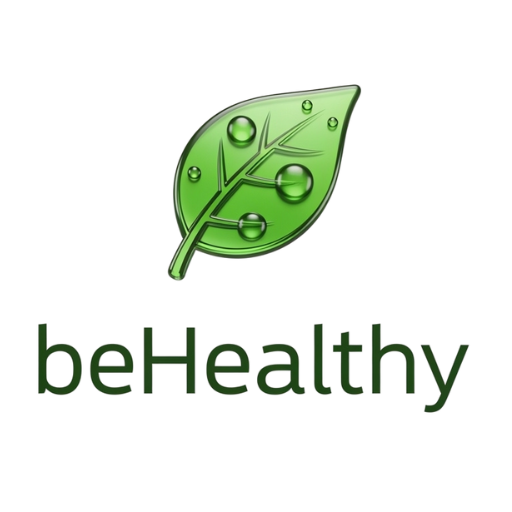
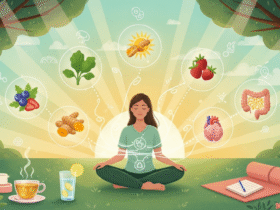

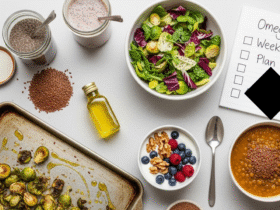


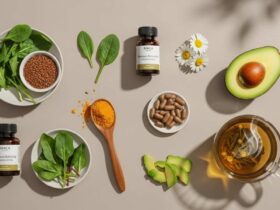



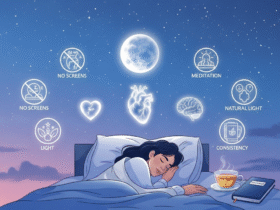
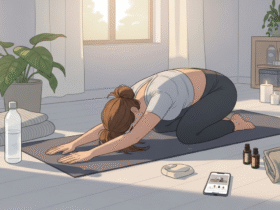
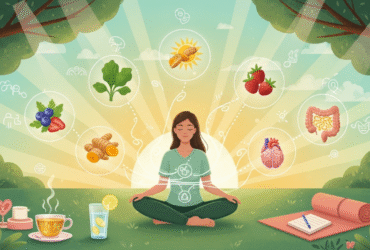


Leave a Reply